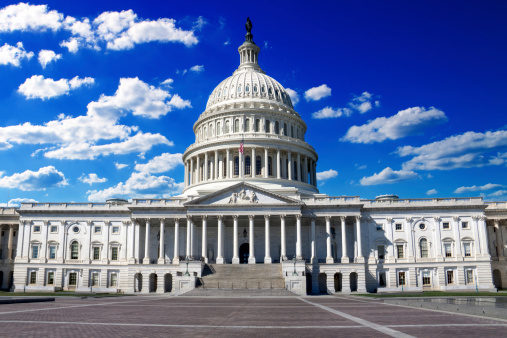
The Shutdown: Effects on Industry

The FDAhasn’t issued a warning lettersince the shutdown began, or at all since December 3rd, which might mean they haven't found anything, but might also mean they don't have enough employees to find things.CBS reportedthat the FDA is restarting inspections of high-risk foods, including seafood, dairy products, fresh fruits and vegetables, and infant formula, thanks to 150 unpaid workers, and that facilities that handle high-risk foods are only required to be inspected once every three years anyway; other facilities are inspected once every five years.
CBS further pointed out that meat, poultry, and processed egg products are still being inspected—by the U.S. Department of Agriculture, which handles those products, and which never stopped inspecting them, as they are deemed essential. Of course, there’s also a warning on the USDA’s website that the site will not be updated or maintained until the shutdown ends. Those looking for anything the USDA deals with—that covers food safety recalls, information about organic farming, and statistics on every branch of agriculture—are therefore dealing with information that is nearly a month old.
The dietary supplements industry is seeing a slowdown, too. Steve Mister, president and CEO of the Council for Responsible Nutrition (CRN), toldWholeFoodsthat, most immediately, the government workers who process NDI and GRAS notifications are furloughed, meaning any statutory time frames are going to have to be waived, and that when these employees get back into office there will be a backlog of notifications, which will then take longer to get through—and so on, snowballing into bigger and bigger delays that mean that new product launches will be held up by unknown amounts of time, costing businesses unknown amounts of money.
And that’s not the only thing holding up new products: When asked about imported supplies, Mister said, “That’s a really good question, and one we don’t have an answer to. Dr. Gottlieb has recalled some inspectors, but we don’t know which ones. We don’t know if customs is allowing items to come in uninspected, or if they’re backlogging items until they can be inspected.” Both options are, to put it lightly, less than ideal.
CBD, too, is affected. Mister points out that, while hemp and CBD from hemp are no longer controlled substances, theFDA still holds jurisdiction over CBDas a potential drug. While the FDA was willing to discuss pathways to use in supplements, those discussions cannot be had during a shutdown. “Less scrupulous companies are going to market anyway,” Mister said, “taking the chance that the FDA won’t come after them. Legitimate, responsible companies, who are playing by the rules, who want to sit down and have this dialogue, are at a disadvantage. The companies that don’t care are getting time on the market, and the companies that do are losing time on the market.”
Finally, Mister said, there’sthe existence oftheDietary Supplements Working Group. “We don’t know what that will be,” he said. “It might help streamline processes of the FDA, it might make it easier for the FDA to take action—but we don’t know, and we won’t know as long as the government is shutdown.”
On the farming front, NPR reportedthat President Trump has spoken to a group of farmers, saying, “The USDA is doing everything in its power to help farmers deal with the ongoing shutdown,” although NPR noted that crop forecasts have been delayed and Farm Service Agency offices around the country are closed.
The NY Times publishedan opinion piece pointing out that the trade wars collapsed the markets on which farmers relied, and that thanks to the shutdown, farmers aren’t receiving loans, farm payments, or any of the aid they were promised that was supposed to help cover losses due to the trade wars. This lack of money, the Times said, impacts the ability of farmers to pay bills; the fact that the government is shutdown means they can’t take out new operating loans.
The news isn’t all bad, or at the very least, there’s some good coming out of the shutdown. The natural products industry is stepping up: Burt’s Beesannounced in a tweetthat they would be pledging a donation to the National Park Foundation, in hopes of helping to restore the parks that are suffering without park workers.People Magazine reportedthat Kraft is opening up a pop-up store between January 16th-20thin Washington, D.C. to support furloughed government workers: called “Kraft Now Pay Later,” government workers with their ID will be able to take home a bag full of Kraft products at no cost, in exchange for which Kraft asks workers to donate to their charity of choice once they are able to do so. World Central Kitchenannounced in a press releasethat they’re opening up a kitchen near the U.S. Navy Memorial to feed federal employees and their families. No one knows how long this will last, or how significant the fallout will be, but as long as it’s happening, people are trying to help, and that’s worth celebrating.
Related Articles

The editorial team at WholeFoods Magazine has decades of experiences reporting on natural products industry news, trends, and more. This national, monthly business-to-business magazine has been published continuously for nearly 40 years (the magazine was founded in 1977, and has been owned by Wainer Finest Communications since 1984). It is the longest-tenured media outlet of its kind in the natural products industry. The editorial focus at WholeFoods Magazine is, and always has been, on informing and educating members of the natural products industry.
The Magazine
Information
About Us
NOTE: WholeFoods Magazine is a business-to-business publication. Information on this site should not be considered medical advice or a way to diagnose or treat any disease or illness. Always seek the advice of a medical professional before making lifestyle changes, including taking a dietary supplement. The opinions expressed by contributors and experts quoted in articles are not necessarily those of the publisher or editors of WholeFoods.







